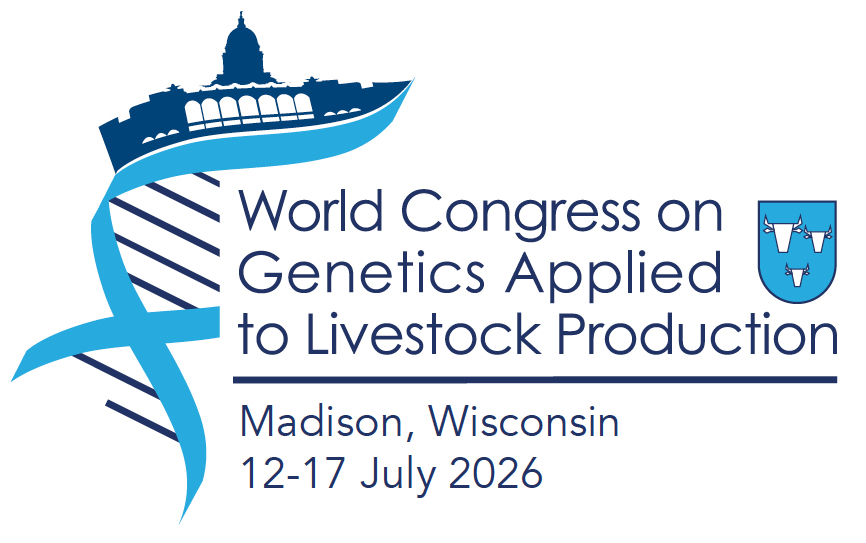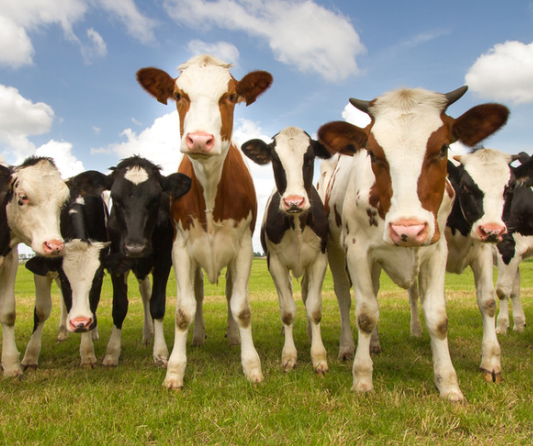
About WCGALP
The World Congress of Genetics Applied to Livestock Production is the premier conference for researchers and professionals involved in genetic improvement of domestic animals, including livestock, poultry, horses, companion animals, and farmed aquatic animals and insects. Held every 4 years, WCGALP is also known as the ‘World Cup’ or ‘Olympics’ of animal breeding and genetics. WCGALP is strongly committed to bring science and industry of all continents together in formal sessions and in informal networks to share and learn about advances in the field and to network with colleagues.
History of WCGALP
The 2026 WCGALP will be the 13th conference of its kind. WCGALP started in the 1970s in Madrid , Spain (1974 and 1982), after which it moved to a 4-year schedule with conferences in Lincoln, USA (1986), Edinburgh, UK (1990), Guelph, Canada (1994), Armidale, Australia (1998), Montpellier, France (2002), Belo Horizonte, Brazil (2006), Leipzig, Germany (2010), Vancouver, Canada (2014), Auckland, New Zealand (2018), and Rotterdam, the Netherlands (2022). See also www.wcgalp.org and wcgalp2022 for the proceedings of these conferences. For additional details on the history and evolution of WCGALP and its leadership and authorship, please see the 2022 WCGALP proceedings paper by Alison Van Eenennaam and Suzanne Hermesch: History and author analysis of the World Congresses on Genetics Applied to Livestock Production.
.jpg?sfvrsn=f9ec55d1_1)
Who attends WCGALP?
The World Congress on Genetics Applied to Livestock Production (WCGALP) is the premier international conference for livestock and animal genetics. Participants are specialists and students in the field of animal breeding and genetics and genomics and related fields. Because of the impact of developments in animal breeding and genetics, WCGALP is also attended by geneticists from the fields of plant breeding and human genetics, who also contribute information that is relevant for animal breeding and genetics. During the congress, participants share knowledge and interact on innovations in the area of genetics applied to domestic animals, including livestock, poultry, horses, companion animals, and farmed aquatic animals and insects.

Scope of WCGALP 2026
The three universities that are co-organizing WCGALP2026 with the American Society of Animal Science, have a strong history in animal breeding and genetics. Iowa State University was the academic home of Dr. Jay Lush, who is known as the ‘father of animal breeding’, as well as of Dr. Lenoy Hazel, who is best known for the selection index. Together, they trained many graduate students from across the globe that formed the 2nd generation of animal breeders in the decades after WWII, including Drs. Charles Henderson and Charlie Smith. Many of their international students went back to their home countries to establish animal breeding programs, as well as animal breeding research, development, and education programs. Dr. Jay Lush obtained his PhD from the University of Wisconsin, which was also the emeritus academic home of Dr. Sewall Wright and the academic home of Dr. James Crow, who, among others, founded the fields of quantitative and population geneticists, from which the field of animal breeding emerged as an applied science. The University of California Davis was the academic home of Dr. Eric Bradford, a famous sheep breeder, and Dr. Hans Albanap, who bred the chicken that was the first whole-genome-sequenced domestic animal. At WCGALP2026 we will celebrate this history, as well as the 25-year anniversary of the 2001 Meuwissen, Hayes, and Goddard paper on genomic prediction and selection, which has been the foundation of many recent advances in our field, as well as in the fields of plant breeding and human genetics.
However, more importantly, WCGALP2026 will focus on how animal breeding and genetics can contribute to solving current and future global challenges, with an emphasis on sustainable production of high-quality proteins from domestic animals for a growing world population in a manner that meets changing consumer and societal demands and needs, in the face of a changing climate. While our field and WCGALP has traditionally focused on livestock, including cattle, pigs, sheep, goats, and poultry, at WCGALP2026 we will also emphasize alternate domesticated sources of high-quality animal proteins, including farmed aquatic animals and insects, as well as other ways that domesticated animals can benefit the human race, including as companion animals and biomedical models. WCGALP2026 will achieve these goals through stimulating plenary scientific sessions with world-class speakers and specialized parallel scientific sessions, either by discipline or topic, or by species, as well as interactive poster sessions. In addition, by organizing so-called ‘speaker duels’, one of the aims of WCGALP2026 is to stimulate discussion on important and sometimes controversial issues in our field, including the role of livestock in future food production systems, the role of technology in advancing animal production in developing countries, the use of ‘big data’ and AI, and how animal breeding can contribute to the One Health challenge of an ever-changing pathogenic environment that increasingly affects both animal and human health. This conference will provide information to inform policy regarding animal breeding and genetic improvement in livestock. By creating a welcoming atmosphere with ample time for interaction and networking, combined with organized field trips, WCGALP2026 will allow all participants to achieve their own set goals, while experiencing the friendly culture of the Midwest or Heartland of the United States and having a great time.




